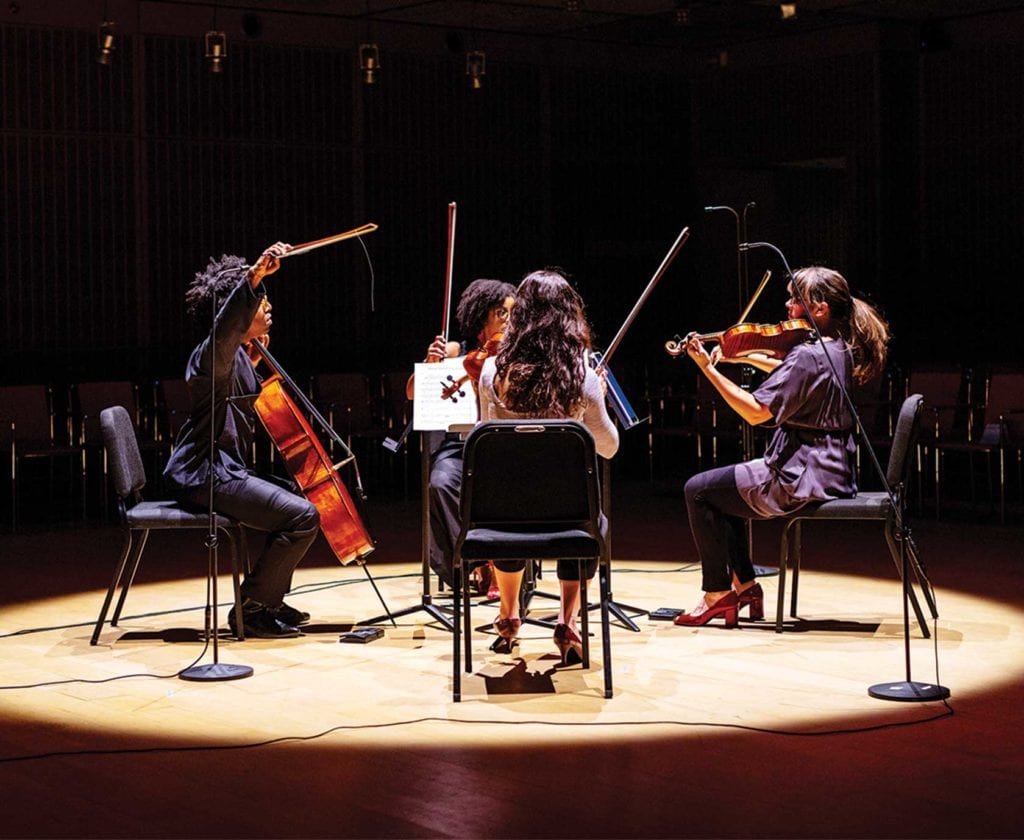
Castle of Our Skins, a Boston-based collective of artists committed to advancing Black artistry through music, celebrates Martin Luther King’s legacy with two free concerts, both produced by Celebrity Series.
On Monday, Jan. 18, the group participated in StringFest, an event that pairs professional string players with student musicians for a concert performance. On Feb. 4, Castle of Our Skins will kick off Black History Month with “Remember King,” a concert dedicated solely to Martin Luther King Jr.’s life and legacy. Both concerts are free and accessible online through the Celebrity Series website.
“We’re highlighting groups that are doing great work in neighborhoods such as Roxbury and Dorchester with artists and professional musicians of color,” says Robin Baker, associate director of community engagement at Celebrity Series. “It’s all part of social equity.”
StringFest was rescheduled from a previous day, and the MLK Day date was a happy coincidence, but the concert’s themes of freedom and resilience resonate powerfully with Dr. King’s message. The program features works by composers of color such as Florence Price, Monthati Masebe, Valerie Coleman and Eleanor Alberga. With their student counterparts, Castle of Our Skins musicians performed the world premiere of “Anthem for Go,” a piece commissioned by Celebrity Series from composer Jessica Mays.
Castle of Our Skins cellist Francesca McNeeley says, “For me, resilience does focus a lot around community. I think there’s a lot of grit and strength in community. The program celebrates that in a very joyful way.”
The upcoming “Remember King” concert, which goes live February 4 at 7:30 p.m., highlights these qualities in Black composers and in King’s work. Castle of Our Skins will perform Daniel Bernard Roumain’s String Quartet No. 2 (“King”), a musical meditation on women’s roles in the Civil Rights movement based on phone recordings of Dr. King and his mistresses. Pulitzer Prize-winning composer George Walker’s “Lyric for Strings” will follow, a stirring journey of the composer’s memories of his grandmother.
One of the benefits of the online format is longevity. Baker notes that the concerts will be viewable online for a year after they debut, allowing audience members to draw resilience from the music at any time.
The two concerts provide audience members the opportunity to draw strength from the music and to reflect on Dr. King’s life and legacy in its totality. McNeeley hopes they will also provide a window into the work of Black composers throughout the history of music. “Black artists have always been there,” she says. “It’s crucial that we represent all aspects of our communities.”








